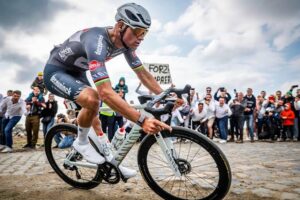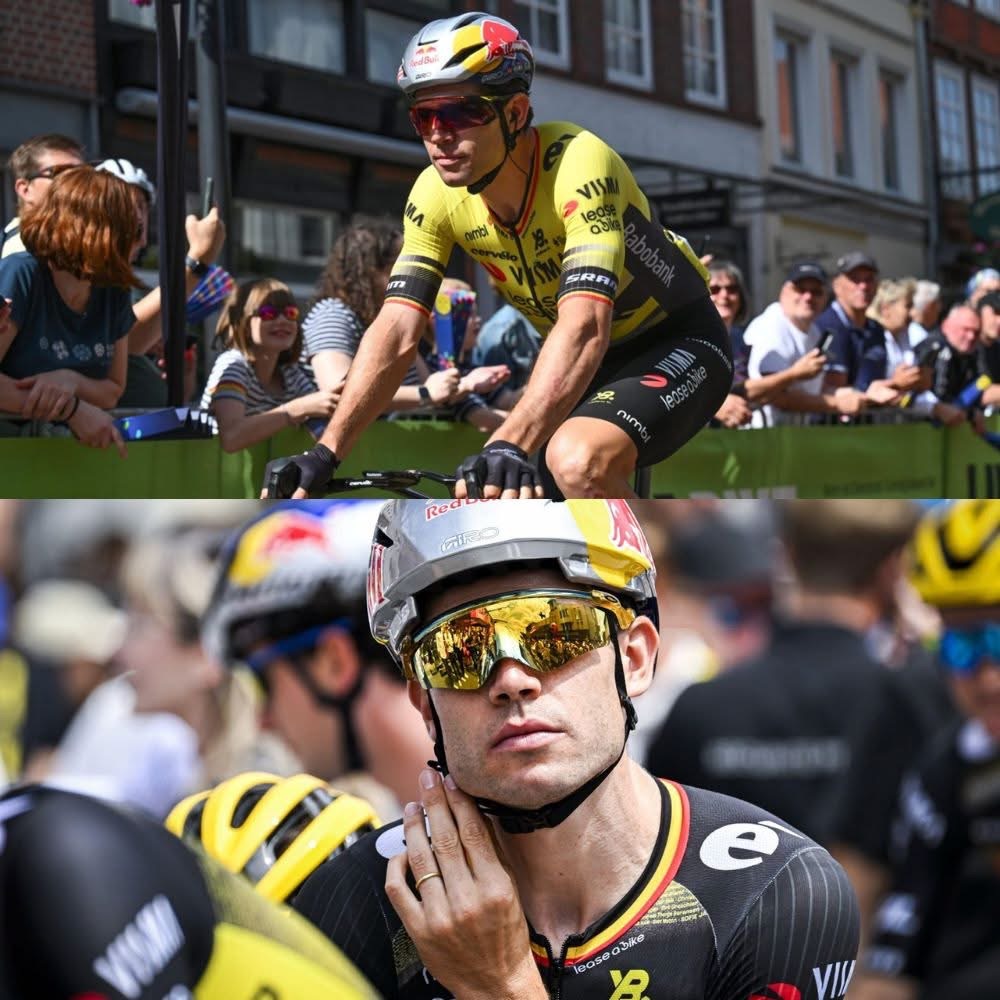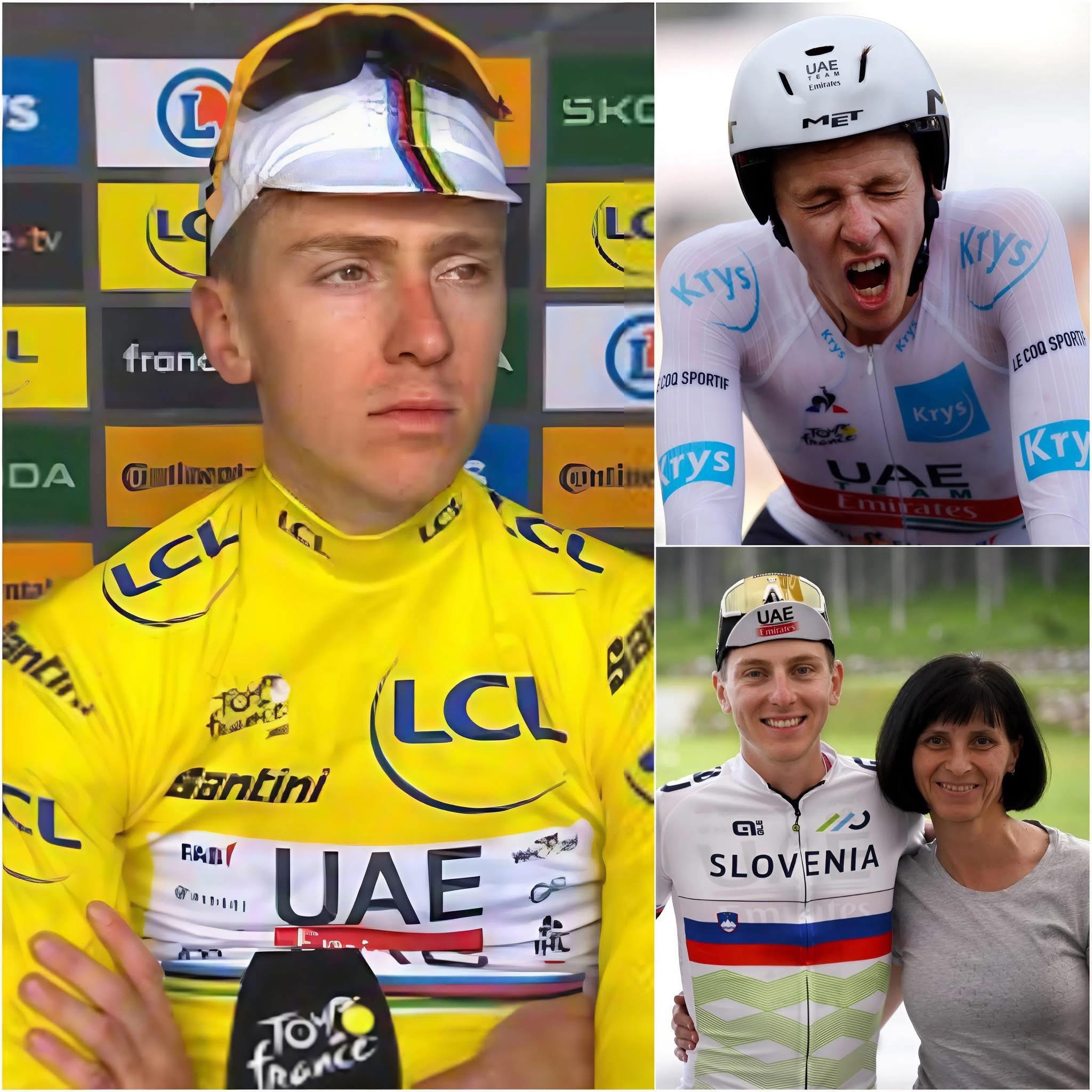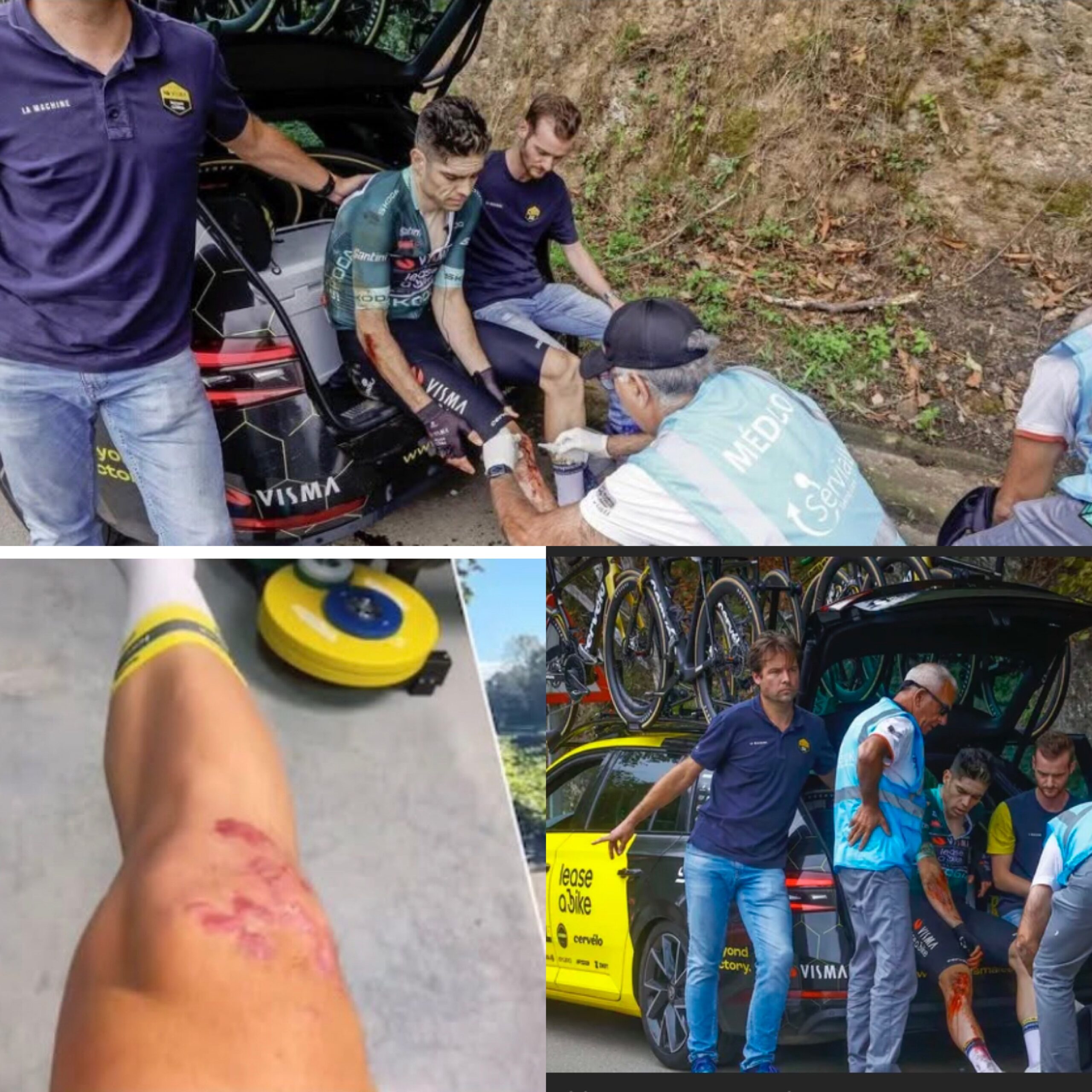**Mathieu Van de Poel and the Uncertainty Surrounding His Readiness for the 2025 Tour de France**
As one of the most versatile and charismatic cyclists of his generation, Mathieu Van de Poel has consistently captured the attention of cycling fans worldwide. Known for his explosive power on the cobbles, impressive cyclocross skills, and burgeoning talents on the road, Van de Poel’s career trajectory has been marked by remarkable achievements and ambitious goals. Among these, participation in the Tour de France has always stood out as a coveted milestone. However, as the 2025 edition of the Tour approaches—scheduled to start on July 5th—there remains a palpable sense of uncertainty about whether Van de Poel will be ready to contend at the highest level in the grueling three-week race.

The Rise of Mathieu Van de Poel
Mathieu Van de Poel, born in 1995 in Belgium, quickly rose to prominence thanks to his exceptional talent across multiple disciplines. His early successes in cyclocross, where he became a world champion and multiple-time national champion, laid the groundwork for his reputation as a formidable rider. Transitioning seamlessly into road cycling, Van de Poel has demonstrated extraordinary versatility, winning classic races like the Tour of Flanders and Amstel Gold Race, and showcasing his sprinting and climbing abilities.
His unique skill set and charismatic personality have endeared him to fans and sponsors alike, fueling expectations that he could become a dominant force in the Tour de France, especially given his capacity for aggressive racing, breakaways, and stage wins. Yet, despite his many talents, Van de Poel has remained cautious about committing fully to the Tour de France, citing the race’s demanding nature and the need for thorough preparation.
The Challenges of Preparing for the Tour de France
The Tour de France is often regarded as the pinnacle of professional cycling, testing the endurance, tactics, and resilience of its participants over more than 3,000 kilometers of varied terrain. For a rider like Van de Poel, whose background and strengths lie in shorter, explosive efforts, preparing for the Tour involves a complex balancing act.
**Physical Demands and Training Regimen:**
To be competitive in the Tour, a rider must undergo a grueling training schedule aimed at building endurance, climbing ability, and recovery capacity. Van de Poel, who has traditionally focused on one-day classics and cyclocross, faces the challenge of shifting his training focus to accommodate the extensive demands of a three-week Grand Tour. This transition requires careful planning to avoid burnout and injury, especially considering his history of injuries and the natural toll of high-intensity training.
**Injury Risks and Physical Fitness:**
Van de Poel has experienced setbacks in the past, including crashes and minor injuries that have sidelined him for extended periods. The physical toll of a Grand Tour can exacerbate these vulnerabilities, raising questions about whether he can withstand the cumulative fatigue and potential setbacks that can occur over three weeks of racing.
**Team Dynamics and Support:**
Success in the Tour also hinges on team support, strategic positioning, and the ability to work with domestiques and team leaders. As a relatively new addition to the WorldTour peloton, Van de Poel’s team needs to craft a race strategy that leverages his strengths without overextending him. The team’s confidence in his ability to handle the race’s demands is crucial, and currently, there is some debate among insiders about whether he is fully prepared to assume a leadership role.
The Psychological Aspect
Beyond physical readiness, mental preparedness plays a vital role in a rider’s performance. The Tour de France is not only physically demanding but also mentally taxing, requiring resilience, focus, and the ability to handle pressure. Van de Poel’s introspective nature and high expectations can sometimes weigh heavily on him. The possibility of failure, injury, or underperformance can create doubt, especially given the immense stakes involved.
Moreover, Van de Poel is known for his ambitious racing style—often attacking early and taking risks. While this approach has garnered many victories, it can also increase the risk of crashes or fatigue. Balancing aggressive racing with strategic patience will be critical, and the mental challenge of adapting his style for a three-week race remains a concern.
The 2025 Tour de France: Key Factors and Uncertainties
Several factors contribute to the ongoing uncertainty about Van de Poel’s readiness:
– **Training Progress and Physical Condition:**
As of early 2025, Van de Poel’s training results and fitness levels are under close scrutiny. His team coaches are monitoring his progress, but the fine-tuning required for a Grand Tour takes months, and any setbacks could influence his decision or readiness.
– **Injury and Health Status:**
Past injuries serve as a reminder of the importance of caution. A minor niggle or illness close to the race could derail his plans or force him to reassess his participation.
– **Team Strategy and Support:**
His team’s confidence in his ability to perform is vital. If team leaders prioritize other riders or if Van de Poel himself assesses that he is not at peak form, he might choose to focus on other goals, such as the World Championships or one-day Classics.
– **Racing Tactics and Personal Goals:**
Van de Poel’s personal ambitions—whether to target stage wins, combat for the yellow jersey, or play a supporting role—will influence his decision. His desire for success must be balanced against his physical and mental readiness.
The Broader Context: Cycling in 2025
The landscape of professional cycling in 2025 is also a factor. The emergence of new talents, evolving team strategies, and the increasing competitiveness of the peloton make the Tour more challenging than ever. Riders like Tadej Pogačar, Primož Roglič, and Jonas Vingegaard are formidable opponents, and Van de Poel’s ability to contend will depend on his race fitness and tactical acumen.
Additionally, technological advancements in equipment, nutrition, and recovery have changed the preparation process, requiring riders to adapt continuously. Van de Poel’s adaptability and willingness to incorporate new methods will impact his performance.
The Decision-Making Process and Future Outlook
Ultimately, Van de Poel’s decision about participating in the 2025 Tour de France will likely be a combination of his physical condition, team advice, and personal ambition. The process involves careful assessment of his training data, health status, and readiness to endure the race’s demands.
Sources close to Van de Poel suggest that he remains cautious and reflective about the race, valuing long-term health and career sustainability over immediate glory. It’s possible he might opt to target other major races in the calendar, such as the Giro d’Italia or the Vuelta a España, or focus on one-day classics, where he can leverage his strengths with less cumulative fatigue.
As of early 2025, Mathieu Van de Poel’s prospects for contesting the Tour de France remain shrouded in uncertainty. His versatility and talent make him a potential candidate for the overall classification or stage wins, but the physical, mental, and strategic challenges of a three-week Grand Tour continue to pose significant hurdles. Whether he will be ready to take on the Tour starting July 5th remains to be seen, but one thing is clear: Van de Poel’s journey toward the 2025 race is characterized by careful planning, introspection, and unwavering ambition. Fans and analysts alike will be watching closely as the season unfolds, eager to see if this exceptional athlete can translate his multifaceted talent into Tour de France glory.



